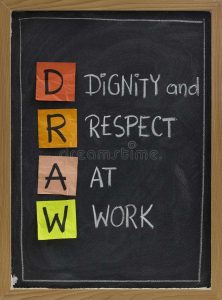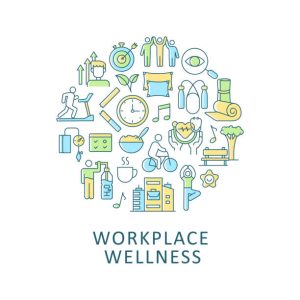
Workplace Mental Health look after yourself
What can you do to protect your job, avoid being dismissed and safeguard your mental health? The effects of the pandemic, the lockdowns, working from home will last for years. This a brief article to act as reinforcement for you. The federal and state governments have increasingly acknowledged the effects by increasing the amounts of money made available for mental health. Take advantage of this, access this as you or your doctors deems necessary. Workplace Mental Health look after yourself, stay focused on yourself, noting wrong with that.
I have saying I use. “where in the bible does it say you cannot put yourself first?”. Sometimes in life, in the workplace this is what you have to do, to survive, to reduce the mental health effects. To keep that job, to avoid that dismissal, to take away the insecurity of it all.
I want to briefly talk about where we are at, then some brief comments around your rights and options.
What is happening to employment after the COVID-19 pandemic?
The coronavirus pandemic is taking many more victims than just those who contract the virus. pandemic also carries in its wake drastic economic impacts. This in turn have caused a massive increase in redundancies, unfair dismissals, terminations and forced resignations. The domino effect of widespread business shutdowns, particularly in Victoria facing Stage 4 restrictions, is sending ripples through society. Our mental health will incur the ramifications.
If it wasn’t enough that the fear of catching coronavirus has plunged many into an ongoing state of worry and anxiety. This coupled with frequently updated restrictions on going about daily life. Once you add unemployment, or the threat of unemployment to the mix, it seems quite challenging to cope with it all.

Workplaces and now
Employees are more fragile than they used to be. Mental health and how to deal with it is up there with climate change the way it impacts on peoples lives. What can you do in the workplace to somehow make your life more bearable and continue to be a productive and useful employee. Exercise is the answer for some, but not everybody wants to be “gym junkie’. Alcohol is not the answer. You can only internalize to some extent. Work with others, lean on others
Talk to others. Sometimes the best stress-reducer is simply sharing your stress with someone close to you. The act of talking it out and getting support and sympathy—especially face-to-face—can be a highly-effective way of blowing off steam and regaining your sense of calm. The other person doesn’t have to “fix” your problems; they just need to be a good listener.
Turn to co-workers for assistance Having a solid support system at work can help buffer you from the negative effects of job stress. Just remember to listen to them and offer support when they are in need as well. If you don’t have a close friend at work, you can take steps to be more social with your coworkers. When you take a break, for example, instead of directing your attention to your smartphone, try engaging your colleagues. If need be change your employer, find one that is more socially engaged. you must take charge of your life
Keep in touch with family. As well as increasing social contact at work, having a strong network of supportive friends and family members is extremely important to managing stress in all areas of your life. On the flip side, the lonelier and more isolated you are, the greater your vulnerability to stress. There is a connection between poor mental health and poor physical health, this is dangerous territory for older employees.
Build new relationships. If you don’t feel that you have anyone to turn to—at work or in your free time—it’s never too late to build new friendships. Meet new people with common interests by taking a class or joining a sporting club, or by volunteering your time. People join church’s not because they are overly religious but to meet people. As well as expanding your social network, do some volunteer work, its positive energy, makes you feel good, and can help significantly reduce stress.

What may happen to the mental health of laid-off workers?
Loss of a job or ongoing workplace issues fueled by pandemic panic is enough to exacerbate pre-existing mental health issues. However, in these unprecedented times, even those without any pre-existing conditions are not immune to mental health concerns. COVID-19 has already been linked to numerous mental health issues, including anxiety, stress, depression and insomnia.
A 2009 European study amid the Global Financial Crisis (GFC) found that every 1% increase in unemployment was correlated with a 0.79% increase in suicides in persons under the age of 65. Now, in 2022, the COVID-19 pandemic threatens to exacerbate mental health issues and suicide risk factors. Which the evidence has the potential of causing a long-term rise in suicide rates.
The effect of the pandemic on mental health, as well as employment prospects, will not just be confined to the tumultuous year of 2020. Ordinarily in Australia, there are over 3000 suicides each year. However, it is projected that due to COVID-19, there may be a 25% annual increase in suicides for up to the next five years.
This equates to an additional 750 to 1000 lives lost each year as a result of the coronavirus crisis. Studies show that those workers in geographical locations and sectors most affected by job losses, such as in rural and regional Australia, will be most greatly affected.

Young people significantly effected
Young people are also projected to be significantly affected by coronavirus job losses, as a large proportion of them constitute the casual workforce in Australia. (many have been casuals for years, with house and car payments). They are usually some of the first to be let go when there has been a stoppage or slowing of work. Lost income and difficulty obtaining alternative employment may cause immense psychological and financial stress.
This has in recent times lead to young people concerned about house prices, inflation and the cost of living. Employers are now considerably more cranky. They are certainly dismissing employees a lot quicker than before. This is despite the the current national labor shortage. The increased dismissals occur in the primarily in the probation period. Employer’s don’t want employees getting to the six month rule for businesses and twelve months if its a small business. This then means that employees don’t have access to the unfair dismissal laws.
The increased level of anxiety as to whether you have a job or not. Are you going to be terminated?, keep many young employees awake at night. How do you keep focused through all this is a serious challenge.

What can you do to safeguard your mental health?
It is easy to get caught up in the tumult of the world around us, but it is important to remember that if you do unfairly lose your job, you have options. If you believe your redundancy was not genuine. That you were forced to resign or you were unfairly dismissed. You may be able to seek compensation through pursuing your matter through the Fair Work Commission.
If you haven’t lost your job but you are facing ongoing issues in the workplace, particularly sexual harassment and discrimination, you also have options for redress. No-one should be made to feel unsafe or uncomfortable in the workplace. Your mental health should not be made to suffer, simply to keep your job. There is no doubt some employers will try and take advantage of the situation. Pay you less, make you work harder, long hours, sexual harassment is increasing. What will some employees put up with to keep their job?
Conclusion:
As experienced workplace advisors and representatives, we can help you obtain justice and support. By seeking advice and advocacy, you can put your emotional and psychological fears at bay. COVID-19, not inflation and the cost of living has caused tough times for all Australians, but you are not alone in your struggle. If you have unjustly lost your source of income, or you are facing ongoing issues in your workplace, we are here for you and we will fight for the outcome you deserve. Your mental health and wellbeing in the workplace is our priority.

Call us now on 1800 333 666 to speak to someone about whether you have a potential Unfair Dismissal or General Protections claim, or to just chat about your workplace situation.
You should also look at our pages on toxic workplaces, this may assist in your recovery, we here to help! We are A Whole New Approach P/l. AWNA are not lawyers but the nations leading workplace advisors. All Fair work Commission matters, including workplace investigations, redundancies, forced to resign. Workers rights, employment rights, and abandonment of employment matters. We are leaders in research, workplace and social commentary. We work in all states. Victoria, NSW, QLD, Tas, SA, WA, NT. Advice is free, prompt, confidential, make the call today 1800 333 666
Workplace Mental Health look after yourself
Should you employer say sorry (when their wrong)
Who has the fairest unfair dismissal laws






